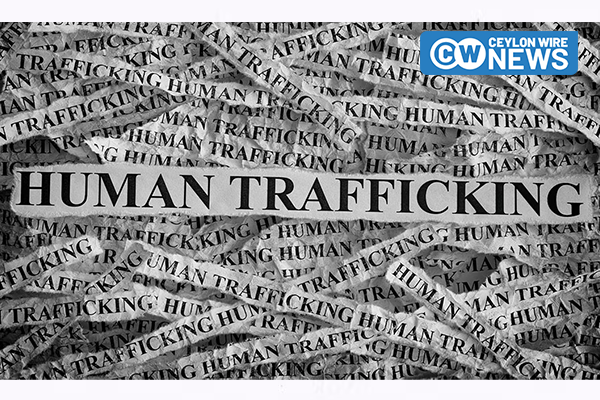The 2024 Trafficking in Persons (TIP) Report by the US Department of State has revealed a sharp rise in human trafficking cases in Sri Lanka, increasing from 59 in 2023 to 95 in 2024.
Among the 95 identified victims, 78 were survivors of labor trafficking, nine of sex trafficking, and eight of other unspecified forms. The report also highlighted that seven of these victims were Pakistani nationals. Sri Lanka remains on Tier 2 of the TIP Report, signifying efforts to combat trafficking but falling short of the minimum standards outlined in the Trafficking Victims Protection Act of 2000.
Ms. N.P. Jayasundara, Manager of the Human Trafficking Unit at the Sri Lanka Bureau of Foreign Employment (SLBFE), noted that trafficking cases frequently involve Middle Eastern countries. She explained that illegal employment agencies often exploit vulnerable individuals with promises of upfront payments or lucrative jobs, later subjecting them to exploitation.
“We handle an average of 2–3 trafficking cases per month, which are handed over to the CID for investigation,” Jayasundara stated. She emphasized that even those migrating through legal channels face risks, as foreign agents often violate employment contracts upon arrival.
One alarming case involved a 12-year-old girl trafficked for domestic work, underscoring the particular vulnerabilities of children. The TIP Report also flagged the increasing use of social media to recruit children for sex trafficking, with Sri Lanka’s coastal areas and tourist hubs identified as high-risk zones for child exploitation.
Adding to these concerns, the National Anti-Human Trafficking Task Force (NAHTTF) has recently warned of Sri Lankan IT professionals being trafficked to cybercrime operations in Myanmar. Victims detained in such camps reportedly endure severe human rights abuses, including mental and physical torture.
To combat these challenges, the SLBFE has intensified its efforts through monthly awareness programs targeting the public, prospective migrants, public officials, and family members of migrants. The bureau also operates an online complaint system for migrant workers.
“Awareness is key,” Jayasundara stressed. “Education, particularly for at-risk youth and job seekers, is the first step in preventing trafficking.”
Source – dailymirror.lk









